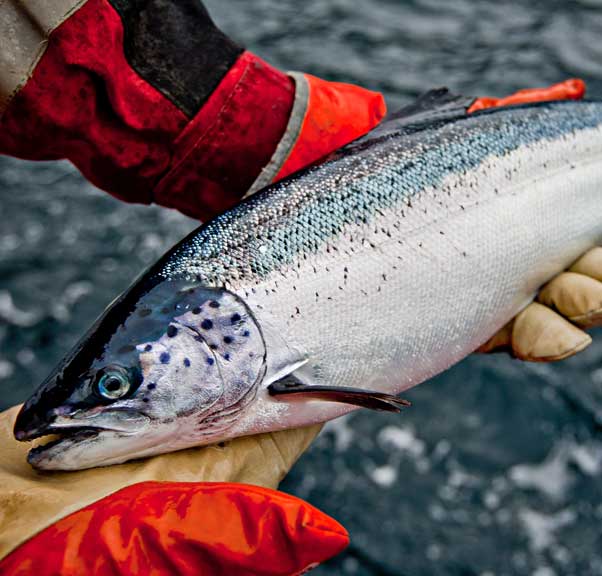After consultations with First Nations, industry and others, the Government of Canada says they will not renew 15 fish farm licences in the Discovery Islands.
They say they are making this decision as pacific salmon stocks are on a long-term decline and many runs are on the verge of collapse. The feds add the Discovery Islands are an important migratory route for wild salmon, with narrow passages bringing them close to farmed salmon.
According to the Cohen Commission, this increases the smolts chances for disease transfer from farmed to wild salmon. Justice Cohen added that the potential harm from the situation would be serious or irreversible.
Minister of Fisheries, Oceans and the Canadian Coast Guard Joyce Murray says it was a decision that needed to be made.
“The state of wild Pacific salmon is dire, and we must do what we can to ensure their survival,” said Murray. “By taking an enhanced precautionary approach in the Discovery Islands area, the Government of Canada will help ensure the well-being of wild Pacific salmon for our children and grandchildren.”
The Federal NDP are applauding the effort from the government. NDP Fisheries and Oceans Critic Marie Barron says it is a step in the right direction, but there’s more work to be done and the NDP are calling for a push away from open-net pens.
The BC Salmon Farmers Association says the decision is devastating to coastal and Indigenous communities, calling it “short-sighted” and “uninformed.”
A report released by the association in February 2021 says more than 24 per cent of salmon production is being shut down, and potentially more than 1,500 jobs lost.
Executive director Greg Kingzett says the communities will continue to feel impacts felt since 2020.
“The decision to not issue salmon farms in the Discovery Islands area is devastating for all coastal communities who rely on the aquaculture sector,” said Kingzett.
“Local communities have been hurting since the decision to remove the farms was announced in 2020, and thanks to this willfully uninformed decision announced earlier today, these communities will continue to experience negative socio-economic impacts of an outcome that was based on politics rather than science.”
The comments are echoed by the Coalition of First Nations for Finfish Stewardship. Spokesperson Dallas Smith says they are “extremely disappointed” in the minister “for not respecting the sovereign authority of the Laich-kwil-tach First Nations (the Wei Wai Kum and We Wai Kai) to decide if, when, or how they want to operate finfish aquaculture in their
traditional waters.”
The coalition adds the Wei Wai Kum and We Wai Kai First Nations sent a proposal to the DFO in November to re-issue some licences in their core territories.
“They put forward a cautionary approach to explore how and if finfish farming could be
part of their Nations’ overall vision to manage their marine space. This decision to deny all licences in their territories has sent the Nations back to the drawing board in that regard,” added Smith.
The coalition adds the farms could have been used “as a critical piece to help the Nations’ advance their holistic marine management plans including growing their Guardian and stewardship programs; enhancing their science capacity using traditional knowledge and Western science; improving wild salmon conservation efforts; and playing a leadership role in the area’s local seafood production.”




